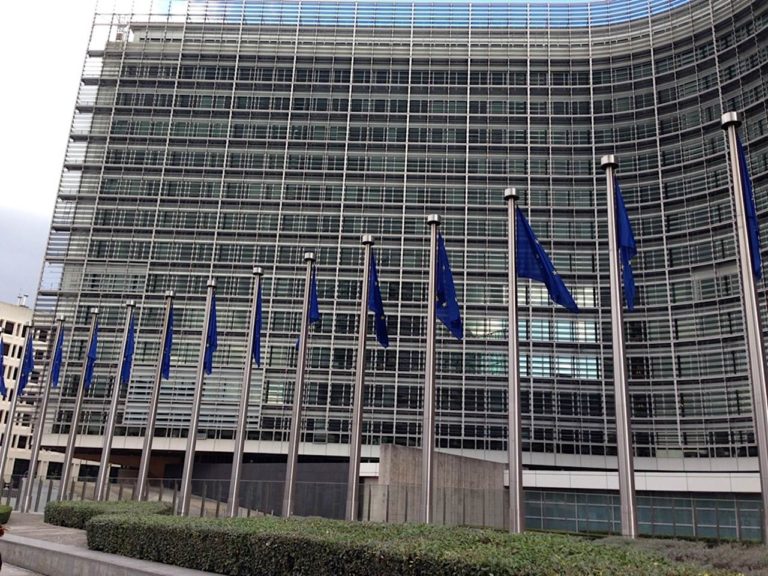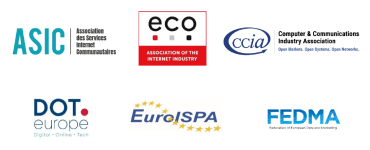Highlights from the Past Week
CW 46 / Monday, 14 to Thursday, 17 November: Political Group and Committee Meetings Week (Brussels);
DATA ACT I – 1070 AMENDMENTS FROM THE INDUSTRY COMMITTEE: Last week saw the amendments to the Data Act in the lead Industry Committee (ITRE) being released. On top of the 94 amendments in P. de Castilla’s draft opinion, the total became 1,164 proposals (95-294, 295-569, 570-843, 844-1164).
The ITRE Committee is expected to vote on the draft report and the proposed amendments on 6 February 2023, once the associated committees (JURI, IMCO, LIBE) have adopted their opinions. The vote in plenary is provisionally scheduled for 13 March 2023.
In the related committees, the meetings are scheduled to be held on 23 January (JURI), 24 January or 3 March (IMCO), and 30 January (LIBE).
DATA ACT II – GENERAL ALIGNMENT SEEMINGLY DERAILED: The Czech Presidency’s ambition to reach a Council position on the Data Act seems derailed as several Member States opposed a COREPER mandate. EU countries had until the end of last week to submit their comments. Cloud interoperability and B2G parts are still far from being agreed upon and new concepts like multi-cloud and egress fees continue to enter the discussion. Prague will present a progress report (draft 17 November, PDF) at the Telecom Council meeting (6 December). (see Euractiv)
CSAM – CZECH PRESIDENCY PRESENTS NEW COMPROMISE PROPOSAL: The Czech Presidency sent a new version of its compromise proposal (PDF) for Articles 1 to 39 of the CSAM Regulation to Member States on 16 November.
Based on the three previously circulated versions, the main changes are as follows:
- Article 2: The inconsistencies regarding age have been corrected, ensuring that children are seen as below the age of 18 in all definitions. The definition of search engines now also refers directly to the DSA.
- Article 3: Providers must update their risk assessments four months before the expiry of the period of application of the detection order.
- A new Article 14a on procedures for cross-border removal orders was included in the compromise text.
- Article 16: Clarifications have been inserted on the powers of the competent authorities and the coordinating authority in relation to blocking measures.
- Article 17: Minor changes have been made regarding the language to be used in blocking
- Article 18a has been slightly modified to specify that national authorities have “the power” to issue de-listing orders.
- Article 21: An additional sentence states that “The request does not have to indicate a specific indicator” with respect to requests by victims for removal in accordance with Paragraphs 1 and 2 of Article 21.
- Article 26: Here it is clarified that Coordinating Authorities shall be free from any direct or indirect influence and shall neither seek nor take instructions from any other public authority or private party.
- Article 36 reverts to the original Commission text regarding the role of the Coordinating Authorities in submitting the identified CSAM to the EU Centre.
EPRIVACY I – NEW COMPROMISE ATTEMPT IN TRILOGUE: After months of stagnated debates, the Czech Presidency and the European Parliament rapporteur have attempted to address the core of the ePrivacy Regulation (Art. 6, 6a and 6b), with a joint non-paper on the articles on electronic communications data, metadata and content. There is also an attempt to arrive at a definition for location data.
Metadata and, in particular, location data, constitute a very controversial topic. The article on the compatible processing of electronic communications metadata was taken off the table due to opposition from Birgit Sippel. The topic of data retention was excluded for the time being and put on hold until later. (see Euractiv)
Reportedly, the proposal has already been rejected by the shadow rapporteurs from Renew and the Greens. The EPP could also not be won over.
The Czech Council Presidency plans to report on the current negotiations in the Telecom Council on 6 December.
EPRIVACY II – EDPB SEEKING GUIDELINES ON COMMUNICATIONS DATA: The European Data Protection Board (EDPB) has unanimously issued a mandate for the development of guidelines in the context of Article 5(3) of the ePrivacy Directive on the conditions for access to and retention of electronic communications data.
The proposed guidelines are meant to describe which technical operations, apart from cookies, fall within the scope of the article. It remains an open question as to whether the guidelines will also cover IP addresses, as, in this context, there seems to be no consensus among data protection authorities.
ARTIFICIAL INTELLIGENCE – COREPER CONFIRMS GENERAL ALIGNMENT: Last week, as expected, the representatives of the Member States (COREPER I) confirmed the proposal for a General Approach on the AI Act (PDF). On 6 December, the Telecom Council – which will bring together EU Ministers with telecommunications competence – is then intended to reach a final confirmation. In contrast to the EU Parliament, the Council would thus be ready for trilogue negotiations.
However, Germany has already noted that there are still “detailed adjustments [that] Germany hopes can be taken into account in the further process,” reports Table Europe (paywall).
EID – COREPER CONFIRMS GENERAL ALIGNMENT: The representative ambassadors of the 27 EU Member States confirmed the proposal for a General Approach on eID (PDF) last week. The text must then be formally adopted by the Ministers with telecommunications competence on 6 December.
CYBER RESILIENCE ACT – INTERNAL MARKET COMMITTEE SEEKING COMPETENCE: IMCO has officially contested the preliminary allocation of the Cyber Resilience Act (CRA) to the Industry Task Force (ITRE). Although cybersecurity files are typically the domain of the ITRE, some note that the CRA is essentially product legislation that regulates market access. (see Euractiv)
MEDIA – JOUROVA WANTS A “FAIR SHARE”: “I dream of a digital tax returning to the media sector,” Commissioner V. Jourová said in a briefing with Politico last week, adding that the media’s economic viability has deteriorated in COVID times and will continue to deteriorate.
She went on to say that there is a need to continue to think about how to get a fair share and how to retrieve the money from Google and others, given that they get most of the money from advertisers, which is then missing for the media sector. As such, she sees the Copyright Directive as only a first step for the media to get paid by the platforms, and concedes that it must be done in the right way and that more should happen.(see Politico Pro, paywall)
DIGITAL SERVICES ACT – REGULATION ENTERS INTO FORCE: On 16 November, the Digital Services Act (DSA) came into force. The regulation will apply from 17 February 2024. However, Article 24(2) and (3), Article 24(6), Article 37(7), Article 40(13), Article 43, and Sections 4, 5, and 6 of Chapter IV will not apply until 16 November 2022.
FRANCE – FRENCH SUPREME ADMINISTRATIVE COURT ANNULS PARTS OF COPYRIGHT RULES: In a ruling last week, France’s Council of State annulled parts of a government text transposing the controversial EU Copyright Directive, as they were perceived to regulate the remuneration of authors. The text “does not provide that authors assigning their exclusive rights for the exploitation of their works have the right to receive appropriate remuneration,” the top Administrative Court wrote.
The administrative complaint was filed by two organisations representing authors and performers. The rest of the text – which includes content moderation requirements for platforms – is likely to remain applicable after the court’s decision. (see The IPKat)
IRIS2 – LAUNCH OF NEW EU SATELLITE SYSTEM: The European Parliament and the EU Member States have reached political agreement on the establishment of a new satellite infrastructure: The EU satellite system “IRIS²” (Infrastructure for Resilience, Interconnectivity and Security by Satellite) is intended to provide more Internet security in the future. The EU’s Secure Connectivity Programme (2023-2027) will provide 2.4 billion Euro for its development. (see press release COM)
5G – COMMISSION ALLOCATES 176.5 MILLION EURO TO BOOST CYBER RESILIENCE: The Commission has launched an invitation to companies, public administrations and other organisations to submit proposals for innovative cybersecurity solutions and to apply for EU funding under the Digital Europe Programme.
The calls aim to strengthen the cybersecurity of 5G network infrastructure by supporting secure services and by improving the testing and certification capabilities of tech solutions and services. The respective grants will also support the implementation of the new rules on cybersecurity of network and information systems (NIS2 Directive) into national legislation, as well as the capacity of Security Operations Centres across the EU to collect and share information on cyber incidents. The aim is to boost cybersecurity resilience and the EU’s capacity to protect, detect, defend, and deter cyber attacks.
The deadlines run until 15 February 2023 (see COM press release).
INFRASTRUCTURE LEVY I – ETNO RESPONDS TO BEREC: The industry association ETNO, which was instrumental in driving a “fair share” proposal, transferred a list of comments to the panel of telecom regulators (BEREC) that issued a highly critical assessment of the initiative in October. In particular, ETNO urged the EU body to broaden the scope of its analysis, to include all players in the Internet ecosystem, to look more broadly at market dynamics, and to consider the impact of horizontal policies related to the two transitions. Most importantly, the association urged BEREC to move from a historical analysis to a forward-looking approach.
INFRASTRUCTURE LEVY II – FRENCH ALTERNATIVE TELECOM OPERATORS EXPRESS CRITICISM: France’s smaller telecommunications operators have spoken out against the digital giants’ attempt to get money from “big tech”. In a statement published in Le Monde (FR), the Association of Alternative Telecom Operators (AOTA) argues that this “digital toll” would jeopardise competition, net neutrality and innovation.
INFRASTRUCTURE LEVY III – SEEN AS UNMERITED BY FRENCH LOCAL AUTHORITIES: French public authorities have sharply denounced the country’s giant telecom operators for their demands to charge money to big tech companies.
Avicca, the association of cities and municipalities for electronic communications and audiovisual affairs, argues that large parts of the Internet are financed with taxpayers’ money. (see Politico Pro, paywall)
COPYRIGHT – VDL CURRENTLY DOES NOT INTEND TO HAVE NEW RULES FOR LIVE TRANSMISSION: In a letter (PDF) to MEP G. Didier (EPP), dated on 10 November, U. von der Leyen says it is still too early to consider new laws against live event piracy. She is responding to the call from 100 MEPs, some of whom are close to the cultural sector, for legislation on this issue. The Commission President believes that the Digital Services Act (DSA) and the orders that rights holders can issue to Internet intermediaries are sufficient. She therefore calls for the full implementation of the DSA before considering new rules. If this framework proves to be insufficient, her letter states that “we will not hesitate to take appropriate action, including proposing new legislation”. (see Contexte, paywall, FR)
Relevant Publications, including from the EP Think Tank:
- Digital Services Act (Briefing)
- Intellectual Property Rights and Distributed Ledger Technology with a focus on art NFTs and tokenized art (Study)
- Path to the digital decade programme (Briefing)
- Resilience of critical entities (At a Glance)
- Recovery and Resilience Dialogue with the European Commission (In-Depth Analysis)
- The adoption of the Recovery and Resilience Plans – public documents (In-Depth Analysis)
- Recovery and Resilience Plans: Payment requests and disbursements made so far (Briefing)
- Financing the Recovery and Resilience Facility: EU Bond and Bill issuance (Briefing)
- 2030 Policy Programme: “Path to the digital decade” (At a Glance)
- European Day on the Protection of Children against Sexual Exploitation and Sexual Abuse (At a Glance)
- Children’s rights in the EU in the light of the UN Convention on the Rights of the Child (Briefing)
- Policy Departments’ Monthly Highlights – November 2022 (At a Glance)
- European Commission work programme for 2023 (Briefing)
- Amendments to the Data Act report (ITRE, P. de Castillo): 95-294, 295-569, 570-843, 844-1164
- Amendments to the Data Act opinion (IMCO, A. Bielan): 87-286, 287-486, 487-680
Outlook for the Current Week
You can find a list of the upcoming dates of the European Parliament here, as well as an overview of the agenda for the coming plenary session week. The meeting calendar for 2022 is available here (PDF). The reports on Resilience of Critical Entities and the 2030 Policy Programme “Path to the Digital Decade” are among those to be voted on.
An overview of the most important dates of the Council week can be found here and the meeting calendar can be accessed here. You can access the official calendar of the Czech Presidency here (PDF).
Included among these dates are:
Summits and Ministerial Meetings:
- Agriculture and Fisheries Council, Monday, 21 November – Agenda, A Items;
- General Affairs Council, Tuesday, 22 November – Agenda, Background Brief;
- Extraordinary Transport, Telecommunications and Energy Council, Thursday, 24 November – Agenda;
- Foreign Affairs Council, Friday, 25 November – Agenda;
- Extraordinary Justice and Home Affairs Council, Friday, 25 November;
Preparatory Bodies:
- Working Party on Data Protection (incl. TADPF), Monday, 21 November;
- Working Party on Hybrid Threats, Monday, 21 November, Thursday, 24 November;
- Working Party on Cooperation in Criminal Matters (COPEN), Monday, 21 November, Tuesday, 22 November and Wednesday, 23 November;
- Working Party on Competitiveness and Growth (Internal Market) (incl. SMEI), Tuesday, 22 November;
- Working Party on Consumer Protection and Information (incl. Regulation on product safety), Tuesday, 22 November;
- Working Party on Tax Questions (Direct Taxation), Tuesday, 22 November, and Friday, 25 November;
- Working Party on Tax Questions (High Level) (incl. global minimum level of taxation), Wednesday, 23 November;
- Horizontal Working Party on Cyber Issues, Wednesday, 23 November and Friday, 25 November;
- Law Enforcement Working Party (Police) (incl. CSAM), Thursday, 24 November;
- Working Party on Tax Questions (Indirect Taxation), Friday, 25 November;
- Working Party on Intellectual Property ( Data Act, Piracy of Live Events); Thursday, 24 November;
- COREPER I ( Data Act, NIS2, EMFA, Chips Act, EED), Wednesday, 23 and Friday, 25 November;
- COREPER II, Wednesday, 23 November;
Information on the weekly Commission meeting can be found on the Commission’s website in the preview (PDF) or (at short notice) in the current agenda. The following topic is on the agenda for the coming week:
- European Semester autumn package
You can find the judicial calendar of the ECJ here.
European Parliament Committees
CW 47 / Monday, 21 to Thursday, 24 November: Plenary Sessions Week (Strasbourg);
LIBE Committee (Civil Liberties)
Current Meetings
- None
Further Meetings (Calendar)
- Open
JURI Committee (Legal Affairs)
Current Meetings
- None
Further Meetings (Calendar)
- Monday, 28 November 2022 (Brussels)
- Tuesday, 29 November 2022 (Brussels)
Dossiers Timetable (5 October 2022)
ITRE Committee (Industry)
Current Meetings
- None
Further Meetings (Calendar)
- Monday, 28 November 2022 (Brussels)
- Tuesday, 29 November 2022 (Brussels)
Dossiers Timetable (15 November 2022)
IMCO Committee (Internal Market)
Current Meetings
- None
Further Meetings (Calendar)
- Tuesday, 29 November 2022, 9.00-12.30 and 14.30-18.30 (Brussels)
Dossiers Timetable (November 2022)
CULT Committee (Culture)
Current Meetings
- None
Further Meetings (Calendar)
- 30 November/1 December 2022 (Brussels)
PEGA Committee (Pegasus Committee of Inquiry)
Current Meetings
- Thursday, 24 November 2022, 9.00-12.00 (Brussels)
Excerpt from the Draft Agenda
…
2. Hearing on “Trade in zero-day vulnerabilities”
…
Further Meetings
- Monday, 28 November 2022, 15.00-18.30 (Brussel)
- Tuesday, 29 November 2022, 9.00-12.30 and 15.00-18.30 (Brussels)
INGE2 Committee (Special Committee on Foreign Interference)
Current Meetings
- None
Further Meetings (Calendar)
- Open
Further Parliamentary Calendar Dates
- CW 48 / Monday, 28 to Thursday, 1 December: Committee Meetings Week (Brussels);
- CW 49 / Monday, 5 to Thursday, 8 December: Political Group and Committee Meetings Week (Brussels);
- CW 50 / Monday, 12 to Thursday, 15 December: Plenary Sessions Week (Strasbourg);




